Elvish madness
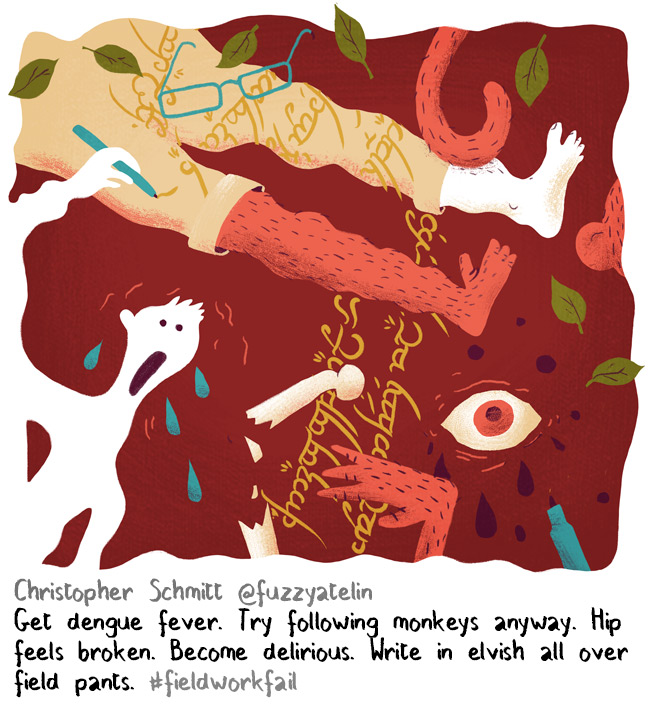

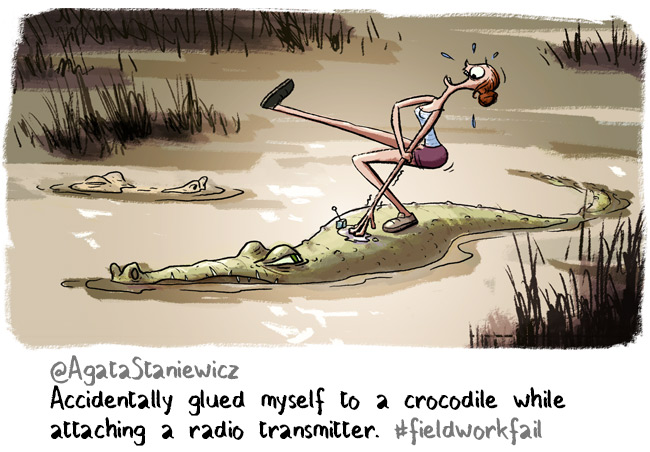

Can you explain what was your job about and why did you need to glue crocodiles ? 🙂
It was part of the research for my MSc in Biology – I’m now about to start a PhD. We were trying to find out the range size of crocodiles in Indonesian Borneo. It lets us know the habitat range the crocodiles need, and how they might interact with other species in the area (including other crocodile species).
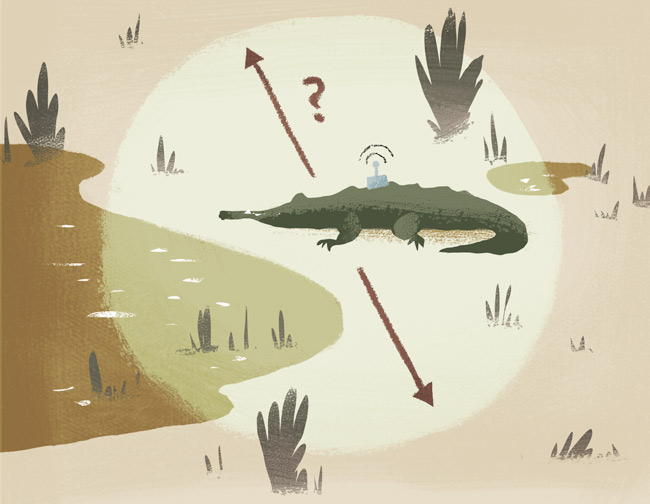
What happened after the hand glued ?
10 minutes of me detatching my finger from the crocodile without detaching the transmitter while the fishermen watched and laughed.
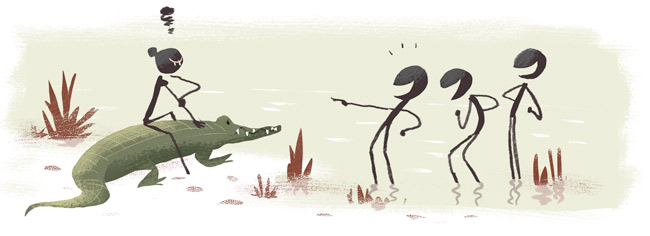
Then the croc lost the transmitter within 24 hours 🙁
Isn’it dangerous to glue things on crocodiles by hand ?
I suppose it is, especially if you’re not very good with handling the glue. I first catch the crocodiles and make sure their mouths are closed and secured (usually with tape or in case of a smaller croc, a rubber band). I also cover their eyes to reduce the stress experienced by the animal.
Someone also needs to hold the croc down (or sometimes sit on it, when it’s bigger) to make sure it doesn’t thrash around or roll. The crocs aren’t sedated or sleeping, so we just need to take all the measurements, mark the crocs and attach the transmitters as quickly as possible.
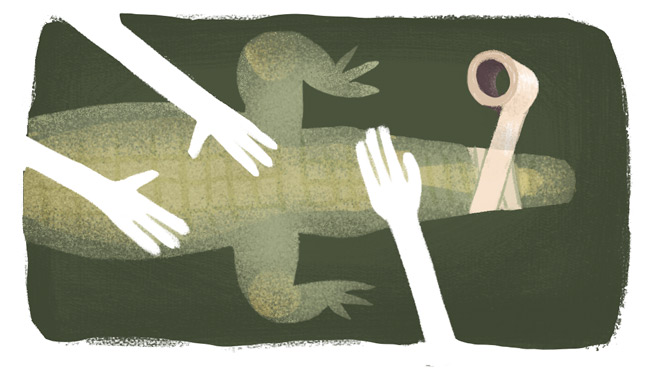
Are crocodiles in danger in Borneo ?
Some of them for sure. The two species I worked on, Siamese crocodiles (Crocodylus siamensis) and Sunda gharials (Tomistoma schlegelii) are Critically Endangered and Vulnerable, respectively.
Thanks Agata!
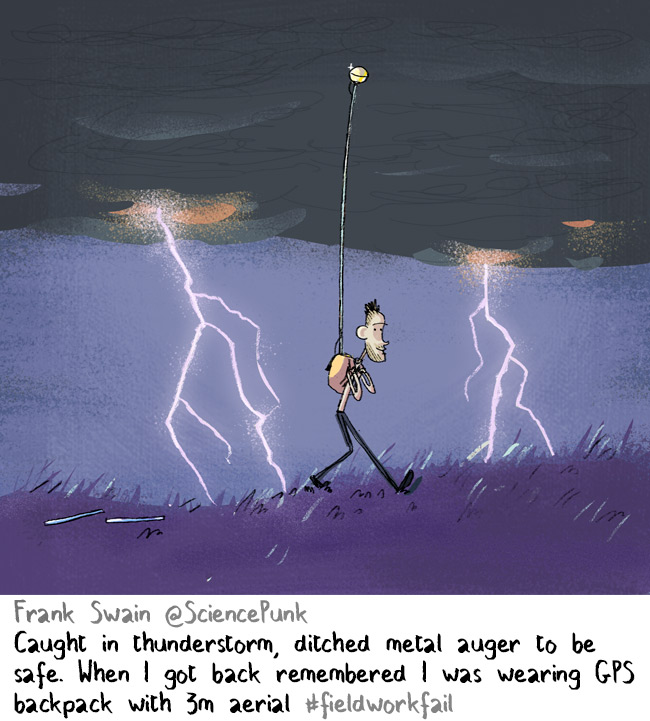
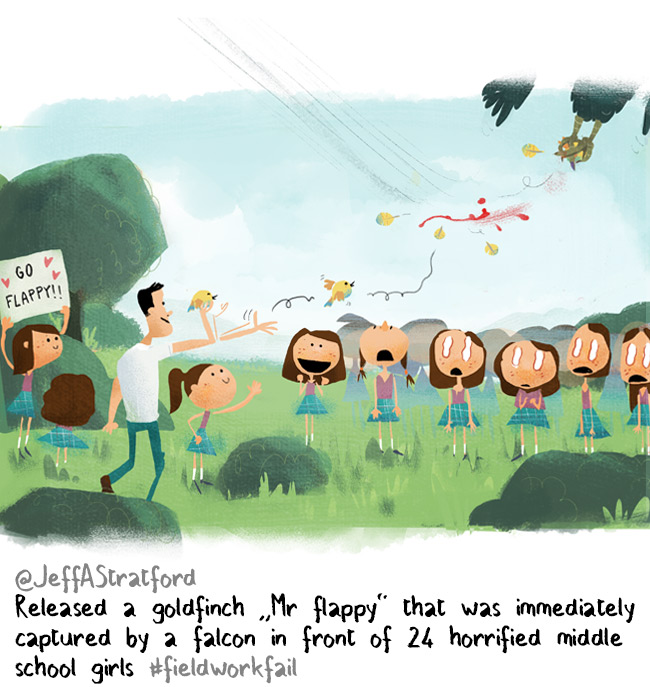

What were you doing with this group?
I was leading a group of school girls on a bird walk along the Susquehanna River. The program is called Women Empowered By Science (WEBS) and we bring groups of young women on campus to do science with university faculty.
What did you do with the birds after catching them ?
Depends on the project. I was looking at blood parasites along urban-rural gradients so I was taking a small blood sample and releasing them. Lately, I’ve been catching birds to examine diets and I take blood samples and a tail feather. We take blood to figure out diets by looking at the carbon-nitrogen isotopes.
All the birds are released and we often catch them in successive years.
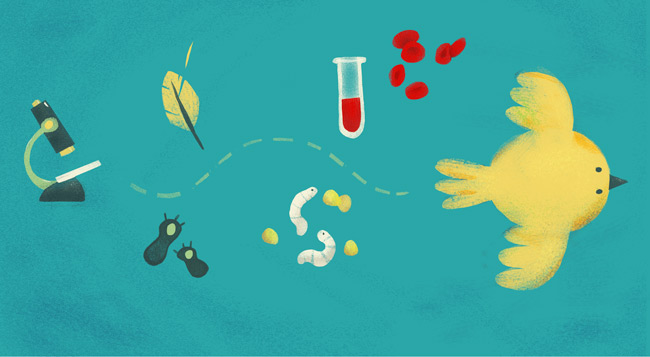
What happened after the unfortunate fate of Mr. Flappy ?
The teacher complained to our department chair that we didn’t ensure the safety of birds – that’s true but how do you keep falcons from eating birds? Anyways, the daughter of that teacher was in WEBS a few years later and was skeptical of the whole exercise of catching birds. Well, in WEBS camp we captured a bunch of birds, all flew off OK, and the daughter came my shadow for the rest of the day.
What is your best memory working on the field ?
I’ve done research in the Brazilian Amazon, longleaf pine forests of Alabama, and old forests in the Poconos, but my favorite moments are catching birds for kids in our local urban park.